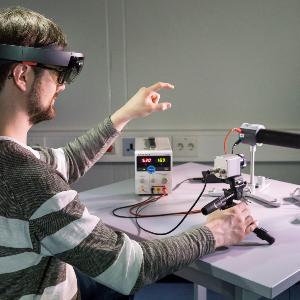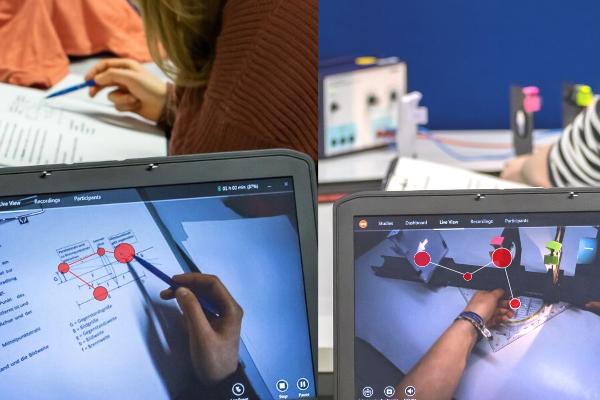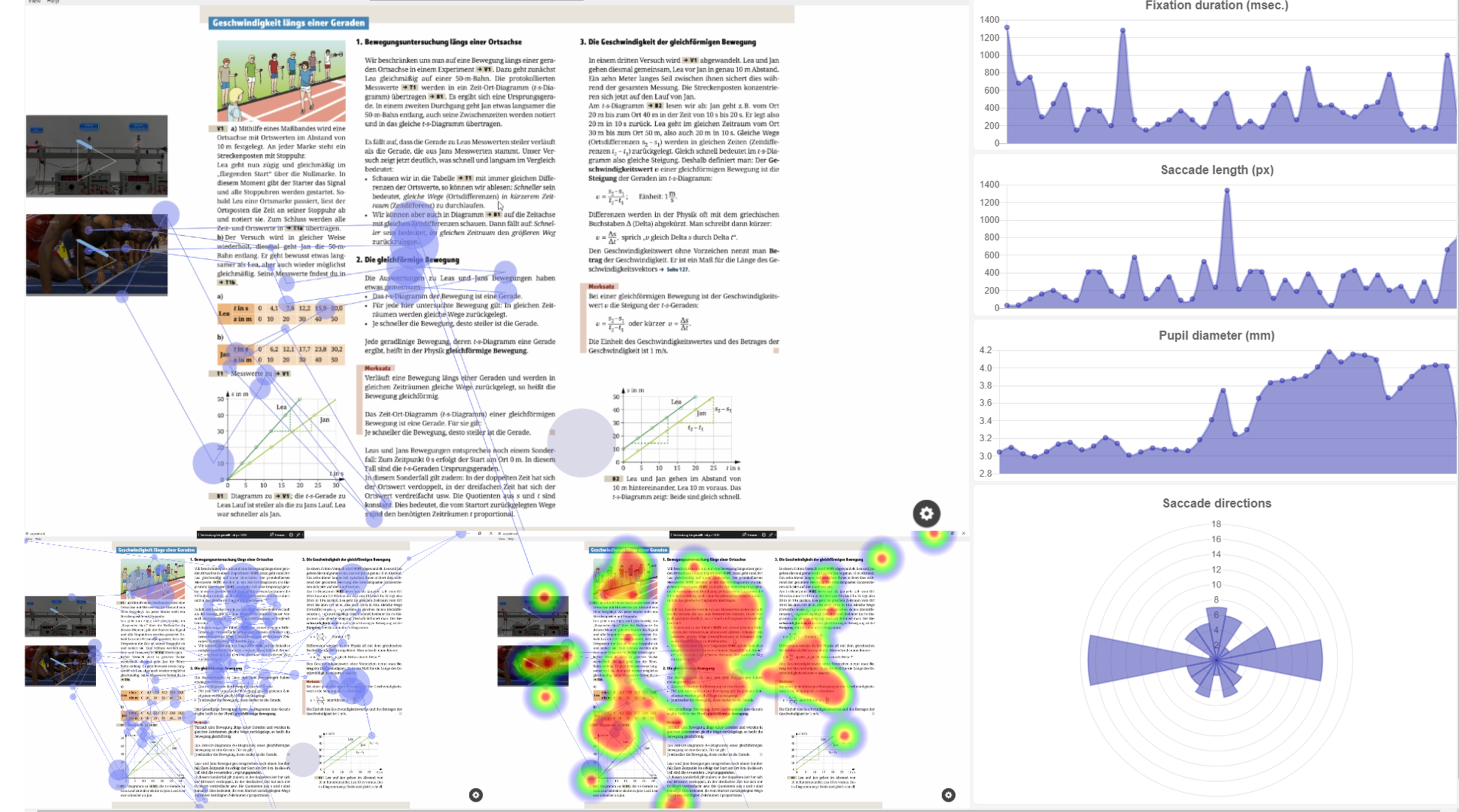
Physics Education
Always one step ahead: anticipating the future to shape tomorrow.
Physics is still mostly perceived by many students today as artificial and not very relevant to the everyday world. The content is considered "dry" and abstract, with many connections and processes purely theoretical and invisible.
We develop and investigate approaches to bridge these tensions between abstract and phenomenological, as well as every day and discipline-specific, through the use of multimedia learning environments. By using multimedia visualizations, so-called multiple external representations, students learn with and about cognitive tools that they also need in everyday life (e.g., interpretations of diagrams and graphs) to enable them to build these bridges themselves. To this end, we also implement modern technologies in learning environments to enhance students’ and teachers’ education with and about such media. The reason for this is that we can expect modern technologies to be used in our everyday lives in the future.

Of course, we want to find out how and with which representations students successfully learn physics, design experiments, or solve physical problems. So, we are not only interested in the outcome of learning or problem solving but in the process itself. This allows us to better understand how we can support, encourage, or challenge students to learn successfully.
This learning support must be individualized and personalized, so different students can access the same learning content through different types of representations, with different strategies, and in different ways. Therefore, predicting learning success through machine learning techniques is also an essential aspect of our research with representations and cutting-edge learning technologies.
We have two main areas of interest in Physics Education Research:
Learning with and about Artificial Intelligence
Technologies based on artificial intelligence (AI) are rapidly gaining widespread importance in society. In physics education research, the Chair of Didactics of Physics at LMU Munich investigates AI-based systems that adapt to the preferences, skills, strengths and weaknesses of learners based on performance, behavioral and physiological data (eye tracking, skin conductance, EEG, etc.). These adaptive systems can, for example, display individual learning support during the learning process or automated feedback at the end of a learning or task-solving phase, thus maximizing learning success. In addition, adaptive systems promise great potential for supporting teachers and lecturers. However, dealing with adaptive systems is not trivial and requires competencies of both learners and instructors. This research area focuses on optimizing learning effectiveness and exploring the conditions for successful use of adaptive systems in real learning and teaching situations.

Augmented and Virtual Reality
Mixed reality applications merge real and virtual worlds, making it possible to enrich real learning environments with virtual information. This technology could help to increase the learning effectiveness of experimentation in physics classes by making physical quantities and processes visible during experimentation. Observed phenomena and underlying theoretical knowledge from physics and mathematics could thus be linked more easily. We investigate which aspects have to be considered in the development of such learning applications, so that overall a helpful and useful tool for physics teaching in universities and in physics classes in schools results.

Topics are especially connected to the research areas of the Physics Faculty and focus on Quantum Physics and Astrophysics. Furthermore, we are also interested in topics at the intersection of Physics and Medicine Education.
Combining research, development, and implementation in schools and teacher education, we also build up iMPULSE, the new Physics School Lab at LMU.
Professor
Prof. Dr. Jochen Kuhn
Multimedia learning in Physics Education / Mixed Reality in Physics Education / Artificial Intelligence in Physics Education / Physics teacher education / Eye tracking
